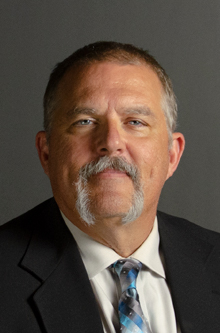Getting the ear of heaven through prayer comes from learning how to weld two incredibly different things together: passion for God and pain.
If we are honest, we lift up far more petitions to God that are driven by our pain than we lift up outpourings of praise and worship. However, prayers driven by pain must be preceded by a pattern of faithful prayers that are outpourings of our passion for God. We really shouldn’t expect timely answers from God when we utter prayers (usually put in the form of demands) in the midst of our many crises if we haven't cultivated a life of prayer based on a love for God.
When Jesus prayed in emotional and spiritual pain in Gethsemane an angel was sent to strengthen Him (Luke 22:43). But much earlier in His ministry Luke wrote, “he would withdraw to desolate places to pray” (Luke 5:16). The hours and hours Jesus spent in prayer simply because He wanted to be in communion with the Father paved the way for the response He received in the garden in His time of spiritual anguish.
Things have gotten pretty dicey in America of late. The COVID-19 pandemic, violence and looting in many major cities across the country, cowardly but lethal attacks on men and women in law enforcement, groups like Antifa and Black Lives Matter stoking hatred, and the politics of destruction and division that is embraced by the Democratic Party have combined to drive many Christians to their knees in anguish and fear of what we are becoming as a nation. Prayer is never a bad thing but if our religious leaders haven’t taught us to pray faithfully and passionately to God when there is no dire need, it may very well affect when and how our prayers in the crisis are answered.
I’m not saying that God turns a deaf ear to our prayers when they are driven by pain if we haven’t prayed in passion. However, prayers offered in pain when there hasn’t been a habit of praying in passion often slide quickly into shallow attempts to manipulate God. Without the passion of prayer undergirding our pain, our prayers are driven by fear which is nothing but the pain of doubt.
Doubt invites fear which cancels faith.
Two things are most responsible for doubt when we are in the midst of great pain (emotional, physical, spiritual, financial, marital, etc.). First, is expecting what God has done for others to be done for us. The cancer patient who hears of all the other people for whom prayers brought miraculous results. The wife whose marriage is disintegrating because of her husband’s infidelity who hears all the testimonies of how God has restored others’ broken marriages. The father whose poor financial choices have landed his entire family in dire financial straits and hears of all the people God has restored from all the misery that accompanies bankruptcy. When the miracle doesn’t come and fear takes hold, the manipulative prayers commence.
We quickly remind God how faithful we have been. How we gave sacrificially when others only gave out of their abundance. How we went to church when others went to the beach. How we honored God in our marriage when so many other marriages were ruined by infidelity. Yet they received miracles. People of lesser commitment were healed of cancer. Marriages, where the husband didn’t even go to church, were miraculously restored. People who blew their money on big houses and nice cars got a reprieve from God when their financial situation came crashing down. It doesn’t take much of that to cast a disparaging eye toward heaven and start reminding God of what He owes you.
It’s not beyond anyone to do this. Consider these words from none other than King David himself:
"I look at the faithless with disgust, because they do not keep your commands. Consider how I love your precepts! Give me life according to your steadfast love" (Psalm 119:158-59).
Wow. That could easily be interpreted as, “You owe me because I’m more faithful than them!” That is the pain of doubt speaking through a megaphone. It doesn’t work and never has. When Jesus intimated to Peter that the apostle’s faithfulness would ultimately lead to martyrdom the first thing that Peter said in response was “What about this man?” (pointing to John). It was as if Peter was saying, “I’ve been here with You as much as he has so it won’t be fair if his path is easier.” We can’t help ourselves. We measure ourselves against others. It’s not fair if God answers your prayers of pain but not mine. And most of us aren’t above pointing that out to God.
The second thing that quickly turns our legitimate prayers of pain into snarky prayers of manipulation is our misreading, misinterpretation, or just flat out missing the main storyline of the Bible: ultimate fulfillment and satisfaction are only found in God’s presence.
In Genesis 3, being “with God” in its purest and intended sense was discontinued due to sin. In Revelation 21 it is finally restored (only made possible through the incarnation, death, resurrection, and second coming of Jesus the Messiah). Not understanding this affects our expectations of God until “that day.”
Jesus made it clear that our task until then is to “seek first the kingdom of God and his righteousness…” (Matthew 6:33). In other words, we are to live preparing to be with God as He always intended. This means that everything else (and I mean everything) takes a back seat to learning to find satisfaction and fulfillment in Him rather than in the things we want and He is capable of providing.
Scripture is replete with examples of some of the staunchest followers of God learning this.
Take for instance the aforementioned King David. Many scholars believe the 23rd Psalm was written during the sunset of David’s life as it refers to enemies, darkness, and death. So while he might have been quick to remind God, when he was younger, about his faithfulness, obedience, and love for the Word, in attempts to sway God to grant him what he believed he needed and deserved, it was after a lifetime of experience that he would write, “Even though I walk through the valley of the shadow of death, I will fear no evil, for you are with me…” (Psalm 23:4). Being “with” God finally became more important than anything else.
The Apostle Paul is another example. In an early letter to the Corinthians, he lamented that he was having to deal with some kind of issue that was hindering his ministry (see 2 Corinthians 12:7-9). He called it a “thorn in the flesh” and a “messenger of Satan to harass me.” He went on to say that he “pleaded with the Lord about this, that it should leave me.” Apparently, it didn’t. Yet later in his ministry, he wrote these well-known and powerful words in Philippians 4:11: “I have learned in whatever situation I am to be content.”
Through their trials and ordeals, both David and Paul learned that what is truly necessary for life is not having God grant every prayer that seeks relief from some kind of pain. Rather, it is becoming aware that no matter what, He is with us and that is enough.
Finding peace in the midst of our pain.
At the beginning of the incarnation of Christ, an angel appeared to Joseph in a dream telling him to wed Mary. Matthew said it was the fulfillment of Isaiah 7:14 which foretold of a virgin conceiving and bearing a son who would be “Immanuel” or “God with us.” It is not coincidental that the very last words of the Gospel of Matthew are, “And behold, I am with you always, to the end of the age” (Matthew 28:20). Thus the life of Jesus is bracketed by promises of God being with us.
The first line of one of the most powerful and well-known hymns ever composed reflects the truth that David and Paul both conveyed in their later years.
When peace like a river, attendeth my way,
When sorrows like sea billows roll;
Whatever my lot, Thou hast taught me to say,
It is well, it is well, with my soul.
Google “Horatio Spafford” or “It Is Well with My Soul” if you want to know the circumstances and story about those words. If you don’t already know them, you may be stunned.
"Has anyone ever been in more pain than Job? Yet in the depths of his pain and misery he was able to say, 'Naked I came from my mother’s womb, and naked shall I return. The Lord gave, and the Lord has taken away; blessed be the name of the Lord'” (Job 1:21).
More than anything else.
What is vital as we pray out of the depths of despair and in the midst of our fear is the belief that God is with us. Not that He will remove all our thorns and messengers of Satan. Simply that He is with us in our anguish. And even if it is His determination that it is best that the thorn not be removed right now, know that the day is coming when the following will be an objective reality:
"He will dwell with them, and they will be his people, and God himself will be with them as their God. He will wipe away every tear from their eyes, and death shall be no more, neither shall there be mourning, nor crying, nor pain anymore, for the former things have passed away" (Revelation 21:3-4).
Cultivate a life of prayer before the crisis and when it comes (and it will) you can pray with confidence knowing you have the attention of all in heaven. And even if the thorn remains despite your fervent prayers that it be removed, all those hours of prayer when the thorn wasn't revealed will have calmed your soul and you too will be able to say, "It is well, it is well, with my soul."
By Dr. Ray Rooney Jr. This article first appeared on the Stand.







